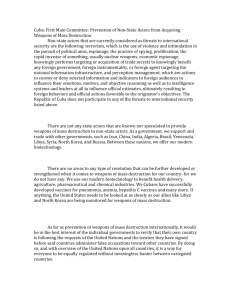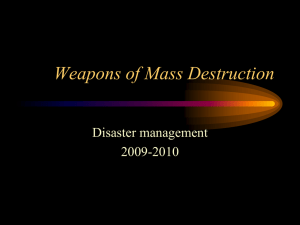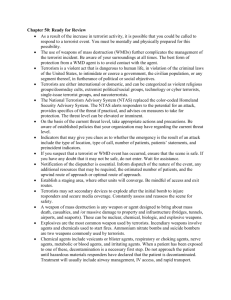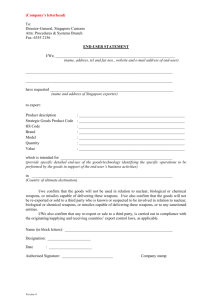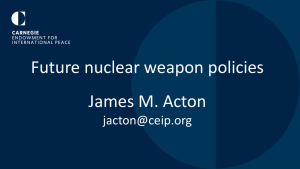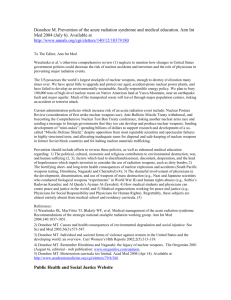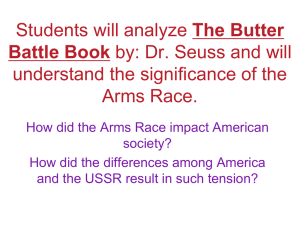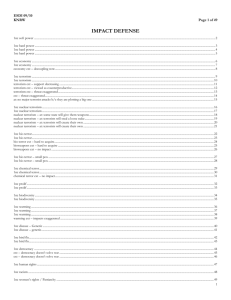France
advertisement
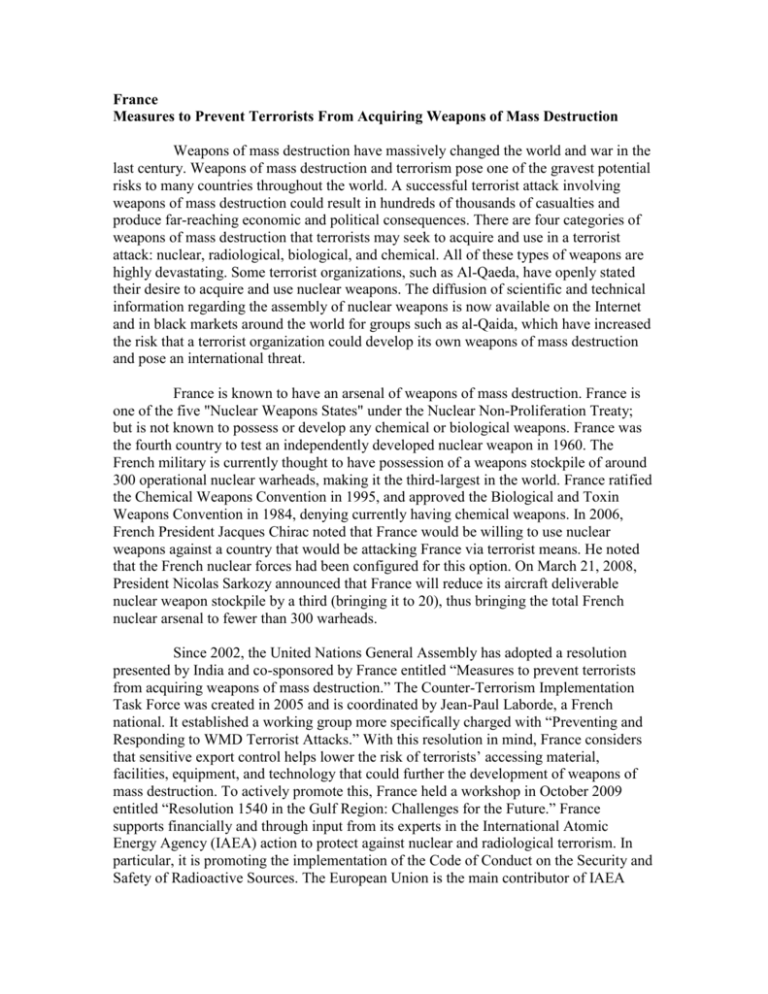
France Measures to Prevent Terrorists From Acquiring Weapons of Mass Destruction Weapons of mass destruction have massively changed the world and war in the last century. Weapons of mass destruction and terrorism pose one of the gravest potential risks to many countries throughout the world. A successful terrorist attack involving weapons of mass destruction could result in hundreds of thousands of casualties and produce far-reaching economic and political consequences. There are four categories of weapons of mass destruction that terrorists may seek to acquire and use in a terrorist attack: nuclear, radiological, biological, and chemical. All of these types of weapons are highly devastating. Some terrorist organizations, such as Al-Qaeda, have openly stated their desire to acquire and use nuclear weapons. The diffusion of scientific and technical information regarding the assembly of nuclear weapons is now available on the Internet and in black markets around the world for groups such as al-Qaida, which have increased the risk that a terrorist organization could develop its own weapons of mass destruction and pose an international threat. France is known to have an arsenal of weapons of mass destruction. France is one of the five "Nuclear Weapons States" under the Nuclear Non-Proliferation Treaty; but is not known to possess or develop any chemical or biological weapons. France was the fourth country to test an independently developed nuclear weapon in 1960. The French military is currently thought to have possession of a weapons stockpile of around 300 operational nuclear warheads, making it the third-largest in the world. France ratified the Chemical Weapons Convention in 1995, and approved the Biological and Toxin Weapons Convention in 1984, denying currently having chemical weapons. In 2006, French President Jacques Chirac noted that France would be willing to use nuclear weapons against a country that would be attacking France via terrorist means. He noted that the French nuclear forces had been configured for this option. On March 21, 2008, President Nicolas Sarkozy announced that France will reduce its aircraft deliverable nuclear weapon stockpile by a third (bringing it to 20), thus bringing the total French nuclear arsenal to fewer than 300 warheads. Since 2002, the United Nations General Assembly has adopted a resolution presented by India and co-sponsored by France entitled “Measures to prevent terrorists from acquiring weapons of mass destruction.” The Counter-Terrorism Implementation Task Force was created in 2005 and is coordinated by Jean-Paul Laborde, a French national. It established a working group more specifically charged with “Preventing and Responding to WMD Terrorist Attacks.” With this resolution in mind, France considers that sensitive export control helps lower the risk of terrorists’ accessing material, facilities, equipment, and technology that could further the development of weapons of mass destruction. To actively promote this, France held a workshop in October 2009 entitled “Resolution 1540 in the Gulf Region: Challenges for the Future.” France supports financially and through input from its experts in the International Atomic Energy Agency (IAEA) action to protect against nuclear and radiological terrorism. In particular, it is promoting the implementation of the Code of Conduct on the Security and Safety of Radioactive Sources. The European Union is the main contributor of IAEA funds for nuclear security, having given over €20 million since 2004 ($27.5 million). Overall, France encourages the definition and implementation of effective international standards to ensure security of storage and handling of sensitive materials to prevent their possession by terrorist organizations.


